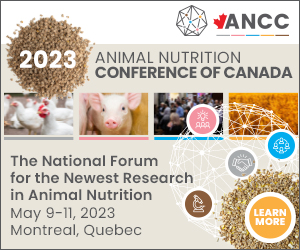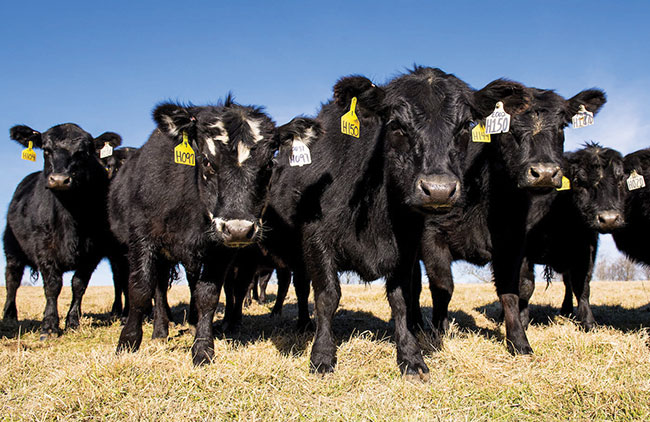| |
| |
 |
 |
| |
 |
|
@{mv_date_MMM d, yyyy}@ |
|
| |
The pesticide is no longer permitted for use on crops destined for livestock feed, prompting ADAMA to relabel its products using lambda-cy.
» Read More...
All eyes are on the industry – from trade disputes and changing regulations around chemicals to global concerns about livestock health.
» Read More...
The group has issued an official response following the U.K.'s accession to the Comprehensive and Progressive Agreement for Trans-Pacific Partnership (CPTPP).
» Read More...
|
| |
 |
 |
| |
|
| |

Join feed industry colleagues at the Animal Nutrition Conference of Canada (ANCC) 2023. This world-class event brings together researchers and feed industry specialists to network and exchange knowledge regarding the latest developments in livestock nutrition.
This year’s robust scientific program focused on the theme, Strengthening the Nutritional Foundation for Animal and Industry Resiliency is sure to provide significant takeaways that attendees can apply to their daily roles in the industry.
ANCC 2023 will take place at Le Centre Sheraton Montreal Hotel in the lively city of Montreal from May 9 to 11. Visit ANAC’s website for further details and registration.
» Learn More |
| |
|
| |
 Good news for cattle farmers: “High-risk cattle” can be raised on a cost-effective “limit-fed” diet just like “low-risk cattle”, without the cows suffering negative health effects. That’s the finding of a recent study by the Arkansas Agricultural Experiment Station, the research arm of the University of Arkansas System dvision of agriculture. This means any high-risk cattle they acquired can be fed the same way as “low-risk cattle”, saving farmers money without compromising on growth goals.
» Read More...
Good news for cattle farmers: “High-risk cattle” can be raised on a cost-effective “limit-fed” diet just like “low-risk cattle”, without the cows suffering negative health effects. That’s the finding of a recent study by the Arkansas Agricultural Experiment Station, the research arm of the University of Arkansas System dvision of agriculture. This means any high-risk cattle they acquired can be fed the same way as “low-risk cattle”, saving farmers money without compromising on growth goals.
» Read More... |
| |
| |
|
| |
|
|
| |
| |






